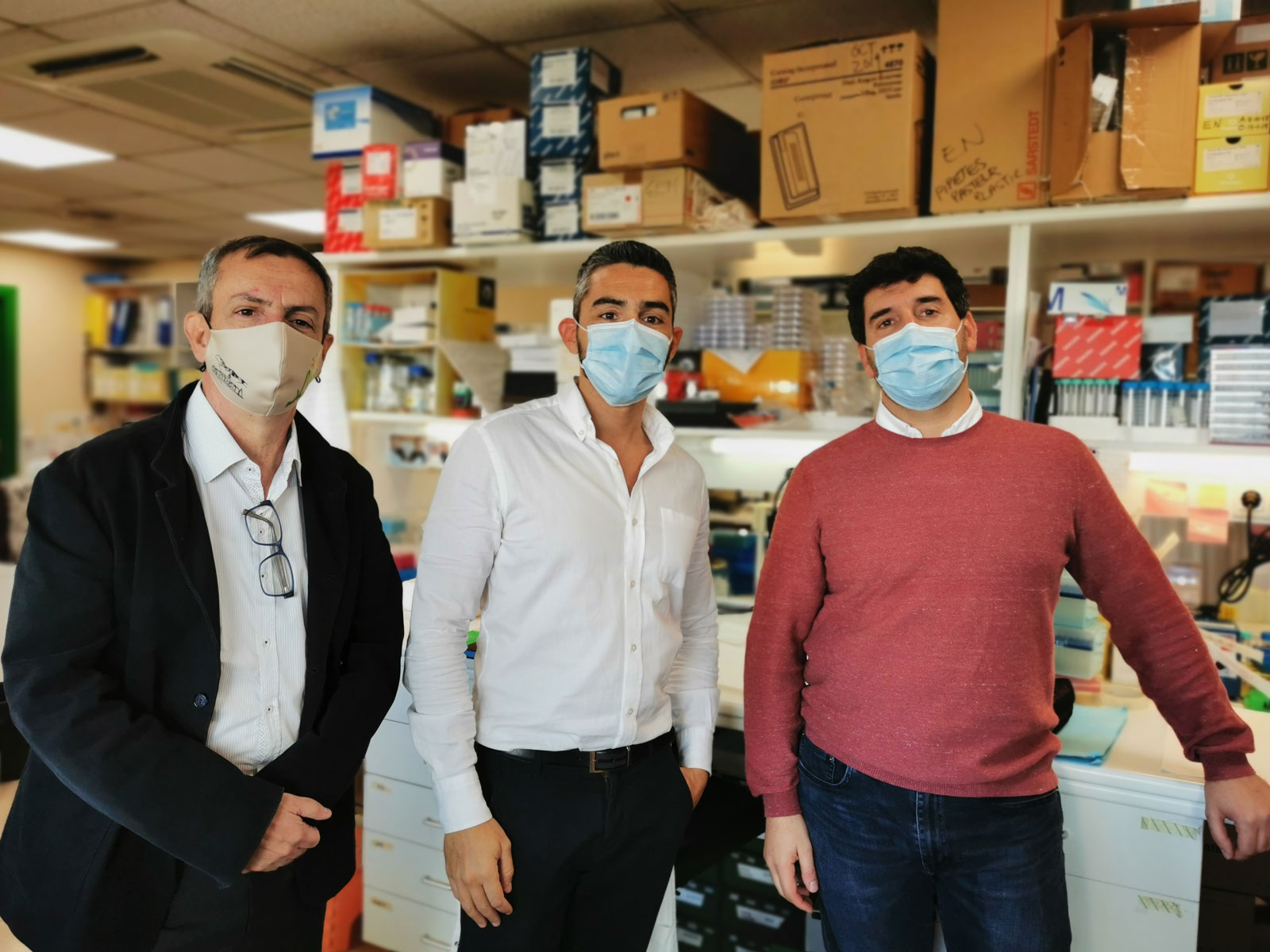Researchers discover a mechanism that can increase survival in patients with advanced prostate cancer

Researchers from the IGTP, ICO and IDIBELL have observed that advanced prostate cancer cells that have become resistant to standard treatment have an Achilles heel that can be attacked with a combination of chemotherapies. Validation of this cellular mechanism would permit identification of patients who have developed resistance to standard treatments and the implementation of more personalized medicine for prostate cancer. The study has been published in the Journal of European Urology.
Prostate cancer is the most common cancer and the second cause of cancer death among men in industrialized countries. It represents 1 in 10 new diagnoses and it is estimated that 25% of men who live with cancer are prostate cancer patients. Fortunately, about 80% of cases are diagnosed in the early stages and have 5-year survival rates of close to 98%. However, for those patients with metastatic disease, or who have developed resistance to treatment, survival is significantly worse.
Today various treatments exist for prostate cancer. One of the most common is hormonal treatment. However, this therapy fails in many patients at which point, the most common treatment is the administration of chemotherapy based on compounds called taxanes.
Despite their efficacy, almost all patients will develop resistance to taxanes.When this happens, the therapeutic options are limited, although it has been seen that some patients may respond to chemotherapy based on platins, cisplatin, or more frequently carboplatin. Currently, the cellular mechanisms that determines whether treatment with platinum will be beneficial for a patient are unknown.
A group of researchers from the Catalan Institute of Oncology (ICO) led by Drs. Albert Font (Badalona Applied Research Group in Ocology at the Germans Trias i Pujol Research Institute (B·ARGO-IGTP) and Alvaro Aytés (Bellvitge Biomedical Research Institute-IDIBELL), have identified a cellular mechanism attenuated in those prostate cancer patients treated with taxanes, and that supposes a vulnerability that can be attacked with platins. Consequently, this pathway could be useful to identify those patients who, having developed resistance to taxanes, could benefit from treatment with platinum.
Dr. Vicenç Ruiz de Porras, the first author of the paper and researcher at the Catalan Institute of Oncology (ICO) and the Badalona Applied Research group in Oncology Group at the Germans Trias i Pujol Research Institute (B·ARGO-IGTP), explains that, "this is an important finding, as it opens up a therapeutic option for patients with very advanced disease and for whom few treatments are available". Another important contribution is that "not only have we shown that the combination of taxanes and platinum is effective and why, we have also provided a marker that, if confirmed, will be useful to avoid unnecessary treatments and side effects", says Dr. Alvaro Aytés, joint corresponding author for the study. "We are already working to move these results into clinical trials with a larger number of patients that will be sufficient to establish whether or not the levels of expression of these markers can predict the patients who will respond to a platinum-based therapy", comments Dr. Albert Font, ICO oncologist, and co-corresponding author. All three agree that "this work has only been made possible by the combination of diverse expertise; from bioinformatics to the generation of preclinical models, molecular biology techniques and clinical research and this is only possible by bringing together a large team of collaborators."
The key is the multidisciplinary approach
In this work published in the journal European Urology, the researchers used computational tools to identify altered cell signaling pathways in patients treated with taxanes. They observed that one of the most altered pathways was the one that confers protection against treatment-induced cell death or apoptosis. Specifically, the antiapoptotic protein BCL-2, and another that regulates it, were consistently inhibited in these patients. Based on this evidence, the researchers hypothesized that this inhibition should make tumors more vulnerable to platinum treatment. To demonstrate this, they carried out experiments in cell and mice models. And indeed, in both, treatment with taxanes reproduced what they had observed in patients and confirmed that the combined and the sequential treatment with taxanes and platinum had a potent antitumor effect. The final confirmation was obtained thanks to the collaboration with groups from the rest of the state and the United States, and their genomic data from patients treated with these combinations. In these patients, it was observed that patients with low levels of expression of the identified markers did respond better to the treatments and survived longer.
Original article
European Journal of Urology: November 02, 2020 DOI: https://doi.org/10.1016/j.eururo.2020.10.001
